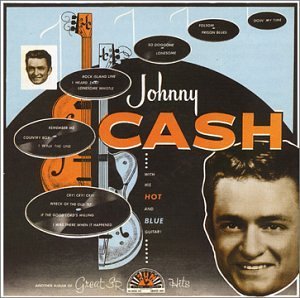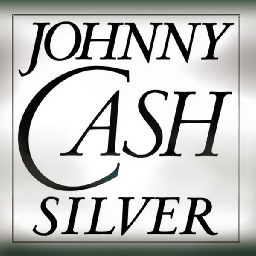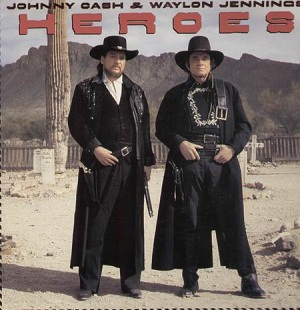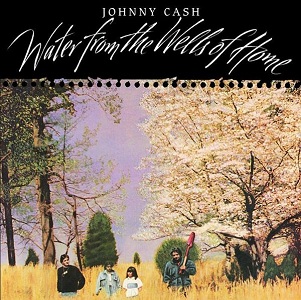Related Research Articles

Conflict is an English anarcho-punk band originally based in Eltham in South London. Formed in 1981, the band's original line up consisted of: Colin Jerwood (vocals), Francisco 'Paco' Carreno (drums), John, Steve (guitars), Pauline (vocals), Paul a.k.a. 'Nihilistic Nobody' (visuals). Their first release was the EP "The House That Man Built" on Crass Records. By the time they released their first album, It's Time to See Who's Who, on Corpus Christi Records, Pauline and Paul had left the band. Conflict later set up its own Mortarhate Records label, which put out releases by other artists including Hagar the Womb, Icons of Filth, Lost Cherrees, The Apostles, and Stalag 17.

The Jayhawks are an American alternative country and country rock band that emerged from the Twin Cities music scene in the mid-1980s. Led by vocalists/guitarists/songwriters Gary Louris and Mark Olson, their country rock sound was influential on many bands who played the Twin Cities circuit during the 1980s and 1990s, such as Uncle Tupelo, the Gear Daddies and the Honeydogs. They have released eleven studio albums, with and without Olson, including five on the American Recordings label. After going on hiatus from 2005 to 2009, the 1995 lineup of the band reunited and released the album Mockingbird Time in September 2011; Olson left the band for the second time after the tour to promote the album. After another hiatus in 2013, the 1997 lineup led by Louris reunited to play shows in 2014 to support the reissue of three albums originally released between 1997 and 2003. Since then, the band has continued to tour and record, releasing the albums Live at The Belly Up in 2015; Paging Mr. Proust, co-produced by Peter Buck, in 2016; Back Roads and Abandoned Motels in 2018; and XOXO in 2020.

The Firstborn Is Dead is the second studio album released by the post-punk band Nick Cave and the Bad Seeds. It was first released in 1985. On this record, singer Nick Cave continued his fascination with the American South, with its references to Elvis Presley and bluesmen like Blind Lemon Jefferson. The photography is by Jutta Henglein-Bildau.

Kicking Against the Pricks is the third album released by the rock music group Nick Cave and the Bad Seeds. First released in 1986, the album is a collection of Cave's interpretations of songs by other artists. The title is a reference to a biblical quote from the King James version of the Bible, Acts 26, verse 14.

Johnny Cash at San Quentin is the 31st overall album and second live album by American singer-songwriter Johnny Cash, recorded live at San Quentin State Prison on February 24, 1969, and released on June 16 of that same year. The concert was filmed by Granada Television, produced and directed by Michael Darlow. The album was the second in Cash's conceptual series of live prison albums that also included At Folsom Prison (1968), På Österåker (1973), and A Concert Behind Prison Walls (1976).

The Tennessee Three was the backing band for country and rockabilly singer Johnny Cash for nearly 25 years, providing the unique backing that came to be recognized by fans as "the Johnny Cash sound".

Johnny Cash with His Hot and Blue Guitar! is the debut studio album by American singer Johnny Cash, released on October 11, 1957. The album contained four of his hit singles: "I Walk the Line," "Cry! Cry! Cry!," "So Doggone Lonesome," and "Folsom Prison Blues." It was re-issued on July 23, 2002, as an expanded edition, under the label Varèse Vintage, containing five bonus tracks, three being alternate versions of tracks already on the original LP. In 2012, Columbia Records reissued the album with 16 additional non-album Sun Records tracks as part of its 63-disc Johnny Cash: The Complete Columbia Album Collection box set. In 2017, 60 years after the original release, the album was remastered under the title Johnny Cash with His Hot and Blue Guitar! . In 2022, Sun released a remastered edition of the original studio album, with only the original track listing. The songs had been remastered as to simulate being in the studio as the tracks were recorded.

Clarence "Gatemouth" Brown was an American singer and multi-instrumentalist from Louisiana. He won a Grammy Award for Best Traditional Blues Album in 1983 for his album, Alright Again!

Unchained, also known as American II: Unchained is the second album in Johnny Cash's American Recordings series. It was released on November 5, 1996, by American Recordings. Like all of Cash's albums for American Recordings, Unchained was produced by Rick Rubin. The album received a Grammy for Best Country Album and Cash was nominated for Best Male Country Vocal Performance for his version of "Rusty Cage."
"Cry! Cry! Cry!" is the debut single by singer-songwriter Johnny Cash. The song was originally released in 1955 and reached number 14 on the Best Sellers charts.

Rockabilly Blues is an album by American country singer Johnny Cash, released on Columbia Records in 1980. Highlights include "Cold Lonesome Morning," which had some minor chart success, "Without Love," by his son-in-law, Nick Lowe, and a cover of the witty "The Twentieth Century Is Almost Over." The first two of the aforementioned songs were the only singles from the album, though "Without Love" hardly enjoyed any chart success, peaking at No. 78. "The Twentieth Century is Almost Over" was re-recorded five years later by Cash and Waylon Jennings, Willie Nelson and Kris Kristofferson, collectively known as The Highwaymen, on their first album entitled Highwayman, though it was, in essence, a duet with Nelson.

Silver is the 25th anniversary studio album by American country singer Johnny Cash, released on Columbia Records in 1979. It peaked at #28 on the Billboard albums chart. "(Ghost) Riders in the Sky" peaked at #2 on the singles chart; the two other singles, "Bull Rider" and "I'll Say It's True", had reached #66 and #42, respectively. Recordings of "Cocaine Blues" had previously appeared on At Folsom Prison and Now, There Was a Song!, under the title "Transfusion Blues" on the latter. The album was produced by Brian Ahern, who controversially introduced digital elements into the songs to the disapproval of some listeners. This is the last album that featured bassist Marshall Grant, longtime Cash collaborator in Tennessee Two. He departed from Cash's band the following year.

The Survivors is a live album by country/rockabilly musicians Johnny Cash, Carl Perkins, and Jerry Lee Lewis, released in 1982 on Columbia Records.

Heroes is a duet studio by American country music singers Johnny Cash and Waylon Jennings, released on Columbia Records in 1986.

Water from the Wells of Home is the 75th album by American country singer Johnny Cash, released on Mercury Records in 1988. It features several collaborations with other artists, including "New Moon Over Jamaica" with Paul McCartney. Other guests include Waylon Jennings, Hank Williams Jr., Glen Campbell, Emmylou Harris and family members Rosanne Cash, John Carter Cash, June Carter Cash and members of the Carter Family. "Call Me the Breeze" is a J. J. Cale song that had been previously performed by Lynyrd Skynyrd. "Ballad of a Teenage Queen" is a new recording of a song that had appeared on Cash's Sun era album Sings the Songs That Made Him Famous. The album did not fare well on the charts, peaking at No. 48; the two singles, "Ballad of a Teenage Queen" and "That Old Wheel", reached No. 45 and No. 21, respectively. A 2003 re-release of the album contained a bonus track, consisting of Johnny Cash discussing various songs on the album.
The Great Eighties Eight was Johnny Cash's band during the 1980s. It was formed after longtime bass player Marshall Grant left the Tennessee Three, and Cash extended his band. The people and number of people changed frequently throughout the 1980s and by 1981 only seven people remained, making the band the Great Eighties Seven. This band was not as popular as The Tennessee Three, and did not have the fanbase that the original Tennessee Two/Three had enjoyed.

The Head Cat is an American rockabilly supergroup formed by vocalist/bassist Lemmy, drummer Slim Jim Phantom and guitarist Danny B. Harvey. Lemmy died in 2015 and as of 2017, former Morbid Angel member David Vincent took Lemmy's place as vocalist and bassist.

Koncert v Praze (1983) is an album by American country singer Johnny Cash.

Videoplasty is the third home video by Primus, following 1993's Cheesy Home Video and the fan club exclusive Horrible Swill. Videoplasty was released at the end of 1998 to complement the band's recent covers EP Rhinoplasty, and is composed mostly of highlights from a live show performed on October 14 that year at The Phoenix Theater in Petaluma, California. This live footage is interspersed with montages of clips filmed during previous tours and at other recent shows, footage shot backstage and in the studio, animations by bassist Les Claypool, and the band's then-current music videos, spanning the previous two years back to the recording of the Brown Album and presented in approximate reverse-chronological order.
"The Folk Singer" is a folk song, written by Charles E. Daniels and American musician Johnny Cash and first recorded by Cash in 1968. It is also known as "Folk Singer" or, less often, "The Singer".